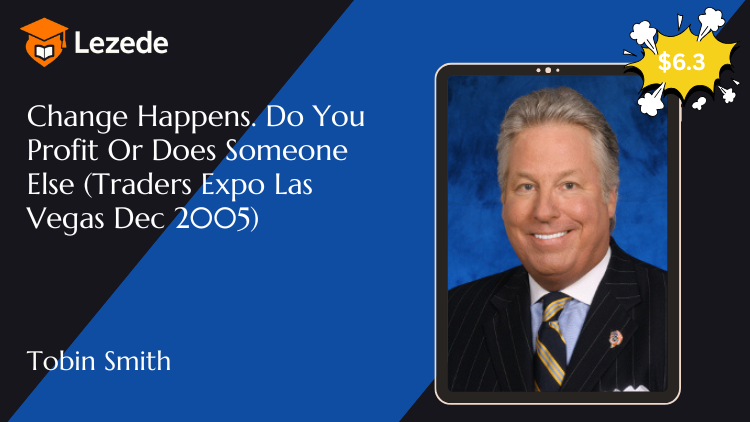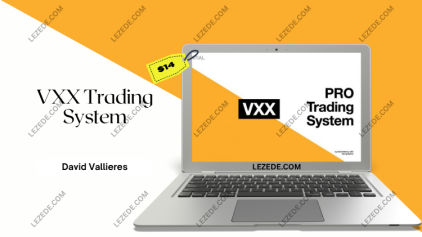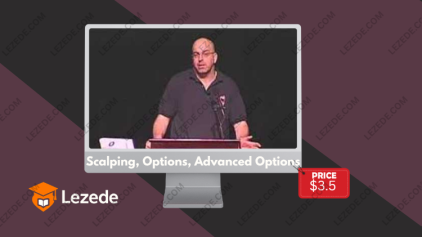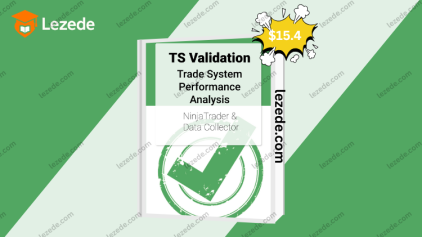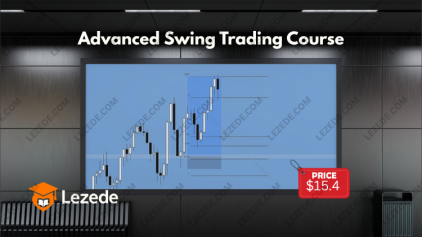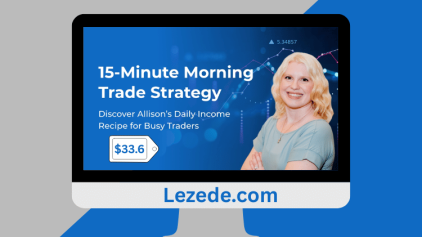Free Download Change Happens. Do You Profit Or Does Someone Else (Traders Expo Las Vegas Dec 2005) by Tobin Smith – Includes Verified Content:
Understanding Tobin Smith’s Vision: Profit from Change
At the Traders Expo Las Vegas in December 2005, Tobin Smith delivered a thought-provoking presentation titled “Change Happens. Do You Profit Or Does Someone Else?” This session served as a pivotal moment for traders, investors, and advisors seeking actionable strategies to navigate constant market fluctuations. Smith, the founder of ChangeWave.com and a seasoned investment strategist, emphasized the urgent need to recognize market shifts and respond with adaptability and intelligence.
He urged attendees to see change not as a threat—but as a chance to profit. In doing so, Smith laid out a practical and psychological framework for thriving in uncertain environments.
Market Dynamics and the Mechanisms of Change
Smith’s presentation unpacked the various forces that drive market change. From economic data to geopolitical events, traders must remain aware of key signals that dictate market behavior.
-
Economic Indicators: Metrics like GDP, employment rates, and inflation are crucial for gauging the market’s health.
-
Consumer Behavior: Shifts in consumer trends can drastically alter business performance and stock prices.
-
Global Events: Political instability, tech disruption, and pandemics can instantly affect global markets.
By staying alert to these elements, Smith asserted that investors can recognize early signs of volatility—and profit from them.
The Power of Knowledge in Smart Investing
According to Tobin Smith, knowledge is the foundation of every successful investor’s toolkit. He emphasized that the more informed an investor is, the better equipped they are to make timely, smart decisions.
To stay ahead of the curve, Smith recommended:
-
Following financial news to interpret trends and policy shifts.
-
Taking online courses or webinars to build specialized knowledge.
-
Networking with financial professionals for diverse perspectives.
Education isn’t a one-time investment—it’s a continual process that enables traders to remain competitive in rapidly evolving markets.
Adopting a Flexible Investment Strategy
One of Smith’s central messages was that rigid investment plans can be dangerous in volatile markets. Flexibility is key to not only protecting capital but also maximizing gains.
He recommended:
-
Diversification: Spreading assets across industries and instruments reduces risk.
-
Regular Portfolio Reviews: Ongoing adjustments help align with new data and goals.
-
Clear Financial Objectives: Defined targets guide quick, decisive moves.
Flexibility isn’t about constant change—it’s about structured agility that enables you to shift with purpose when markets demand it.
Actionable Strategies for Long-Term Success
Beyond theory, Smith provided several practical strategies aimed at ensuring profitability over time. These included:
-
Trend Analysis: Identifying macro and micro trends to support buying or selling decisions.
-
Leveraging Technology: Using data tools and platforms to analyze market patterns more efficiently.
-
Risk Management: Setting stop-losses, hedging, and defining risk exposure per trade.
Such strategies are essential for building a repeatable process, one that withstands both bull and bear markets.
Emotional Intelligence in Trading
A unique part of Tobin Smith’s session involved the psychological aspect of trading. Emotional responses—such as fear and greed—can wreak havoc on an investor’s performance if not controlled.
To manage emotions effectively, he advised:
-
Self-Awareness: Recognize emotional triggers before they influence decisions.
-
Mindfulness Practices: Use meditation or journaling to remain grounded and focused.
-
Preset Trading Limits: Define your maximum acceptable loss or target gain before entering a trade.
Emotional control isn’t a bonus—it’s a critical skill that separates winners from losers in turbulent markets.
Conclusion: Thriving in a World of Constant Change
Tobin Smith’s powerful message from the 2005 Traders Expo remains deeply relevant: change is inevitable—but who profits from it is a choice. His insights remind traders and investors that proactive learning, emotional mastery, and strategic flexibility are the real drivers of success.
In a world where financial markets are constantly evolving, those who adapt, learn, and act intelligently will not only survive—but thrive.

